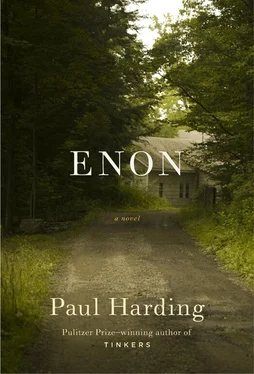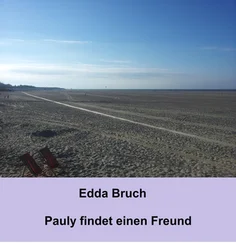When my grandfather was alive, and whenever I had a hard time during college making enough money to pay rent or bills or to buy groceries, he paid me to help him with his clock-repair business. He had been a machinist at a shoemaking factory for years when he’d been young and then taught mechanical drawing at the vocational school the next town over. He cut new gears for broken clocks in his basement workshop and used a slide rule. I had no aptitude for numbers and was useless when it came to making real mechanical repairs. But I had a pretty good feel for taking the works apart and finding out what was wrong and then putting them back together and oiling the pinions after my grandfather had done the skilled work and I had cleaned everything in an ammonia bath in the ultrasonic cleaner.
Whenever I worked for him, my grandfather made me get to his house by seven in the morning. I’d find him at his kitchen table reading The Wall Street Journal , because he had a few shares in a couple of utility companies, and my grandmother clearing his breakfast plate and coffee cup.
“Behold!” he cried when he saw me. “The flower of Enon village!” I groaned, sleepy, and tried to smile. He folded his paper and rose from his seat and said to my grandmother, “Well, never mind the wood, Mother.”
I finished, “Father’s coming home with a load,” and we all laughed and my grandfather and I went down to the basement and went to work, him at his old school desk that, in order to get it into his basement, he’d had to cut into pieces and reassemble, and me at the workbench, puzzling out the guts of a carriage clock.
One morning I found my grandfather already dressed in his windbreaker and Greek fisherman’s cap.
“Leave us go, Lucky Pierre,” he said.
“Where?”
“We are going to Mrs. Hale’s house,” he said. “She has a tall clock she wants looked at.” Whenever a customer had a grandfather’s, or tall, clock that needed repairing, my grandfather made a house call to see if he could fix the problem at the home, so the clock’s works would not have to be removed from the case and transported.
My grandfather and I drove to Mrs. Hale’s in his station wagon. We brought a stepladder and a tackle box and an old leather physician’s bag full of tools. As we came around the last turn in the driveway, the house rose and spread across the view in front of us. My grandfather whistled.
“I guess you know what she spends her time doing,” he said.
“What?”
“Counting her money.” I pulled the stepladder and tackle box out of the back of the car, and my grandfather took the physician’s bag. We walked to the main door and my grandfather lifted the brass knocker — a pheasant — and tapped the rhythm to “Shave and a Haircut.” One of the things of which my grandmother remained most proud her whole life was that my grandfather had never used the service entrance to any home where he did work. “He always used the front door,” she said many times.
Mrs. Hale, as slight and lean as I remembered, with her white hair pulled back, appeared in one of the sidelights. She did not acknowledge us and vanished from the window. A moment later, she appeared around a far corner of the house off to our left.
“Come through here,” she called.
She showed us into a hallway that seemed to connect two wings of the house. “Good morning, Mr. Crosby. Haven’t had that front door open in years. This one is closer to the clock anyway.”
Mrs. Hale led us into the main part of the house, past elegant, dimmed rooms and long hallways to a broad, uncarpeted wooden stairway. The clock stood on a landing halfway up the stairs. It was seven feet tall and wholly without ornament. Its hood was a simple, beautifully constructed box of wood and leaded glass. Its dial was ivory white with slender Arabic numerals painted around its circumference and nothing else, no illuminations, no decorations. Its case was narrow and plain, the wood seasoned and dull with age.
My grandfather whispered, “Well, I’ll be damned .” Mrs. Hale raised an eyebrow and looked at my grandfather for an instant and resumed her impassive demeanor.
“I guess you know this is one hell of a clock,” my grandfather said. “Simon Willard. If the works are what I think they are, this is the only one of these he ever made.”
“Mr. Willard made it for my grandfather,” Mrs. Hale said, by which she meant her great-great-great-great-great-grandfather. “There are some clockwork roasting jacks in the fireplace in one of the old kitchens, as well, that he made for Mr. Revere when they were in business together.”
The house enchanted me. I felt a mix of awe and longing and embarrassment at the awe and longing. I wondered how many kitchens there could be, whether the huge outer house contained several others, nested one inside another, like Russian dolls, each smaller and more primitive than the one immediately encapsulating it, until, arriving at the center, one would find a mud hut, and in the middle of its earth floor a charred depression in which sat ashes, dead to appearance, but from which the gentle breath from someone kneeling in the dirt and putting his face to them, close enough to whisper a confession, would arouse an orange ember, crystalline, nuclear, at the very heart of Enon’s greatest virtues and its innermost corruptions.
“And there is the orrery, of course,” Mrs. Hale said. “Mr. Willard made it for my grandfather, for Christmas 1799, the year there was so much snow.” She talked about and among the generations of her family and their acquaintances as if they were all alive and their doings recent or, if not recent, remote but personally recallable. “That is in my grandfather’s study. One of Mr. Willard’s brothers — I think it was Aaron — made several orreries, but Simon made just the one, for my grandfather, as a token of his affection.” Mrs. Hale stopped herself abruptly, as if catching herself in the sin of demonstrativeness, offering so much information. It occurred to me that she must be lonely. I looked from Mrs. Hale to my grandfather.
“What gives, Captain?” my grandfather asked.
“I don’t know what that is,” I said.
“An orrery is a mechanical model of the solar system,” Mrs. Hale said. She seemed pleased at the opportunity to instruct somebody.
“Oh. That sounds wonderful,” I said and smiled, at a loss for the correct response.
“Yes, it is quite wonderful. What do you think about the clock, Mr. Crosby?”
My grandfather said, “Well, let’s take a look and see what’s what. Set that ladder right in front there.” I opened the ladder and stood it in front of the clock. My grandfather climbed up and the two of us removed the hood together and I placed it on the floor at the bottom of the stairs. My grandfather looked at the clock’s works and whistled again. He said, “This is it, boy. Boy, is this ever it .”
“I’ll leave you two gentlemen to your work,” Mrs. Hale said. I smiled and nodded and she walked off into the reaches of the house.
“Open the case and take the weight off,” my grandfather said. He handed me an old-fashioned key he’d taken from the front ledge of the hood before we had removed it. I inserted the key into the keyhole and opened the door. The old air fell out of the clock, dry, held in the cubic shape of the case for who knows how many years until I opened the door and it collapsed out into the contemporary atmosphere, distinct and nearly colonial for a moment and then subsumed, and I wondered how old it was, if it contained any of Simon Willard’s breath. I lifted the lead weight and unhooked it from its pulley wheel. It felt like removing the heavy heart of the clock. I laid the weight on a rug at the foot of the stairs. It thudded onto the wool like an object from another, outsized planet with twice the gravity of our own. A heavy lead heart, I thought. That has to do, too, with the burning ember in the center of the house.
Читать дальше












